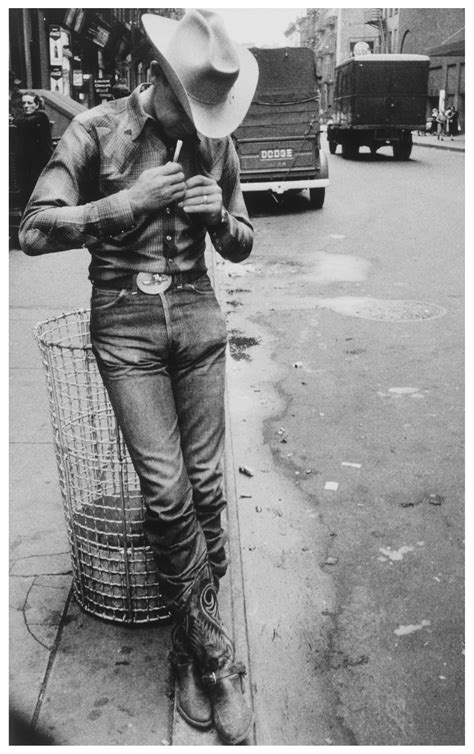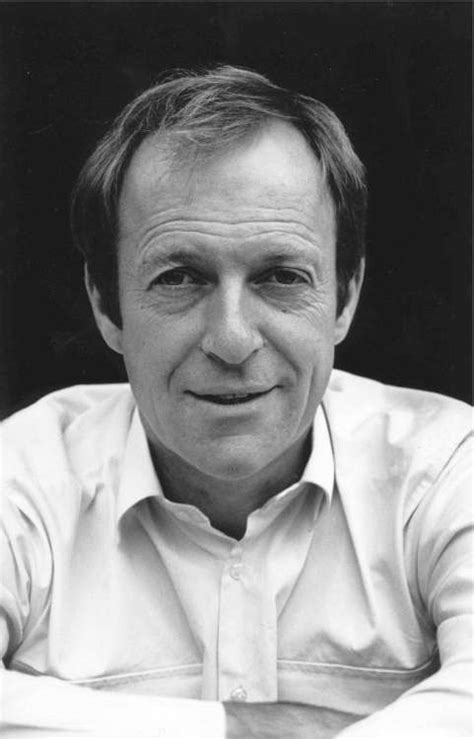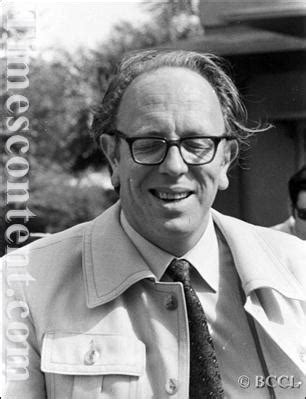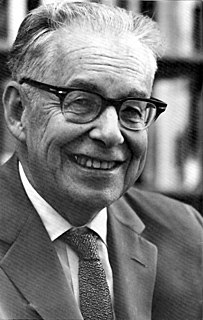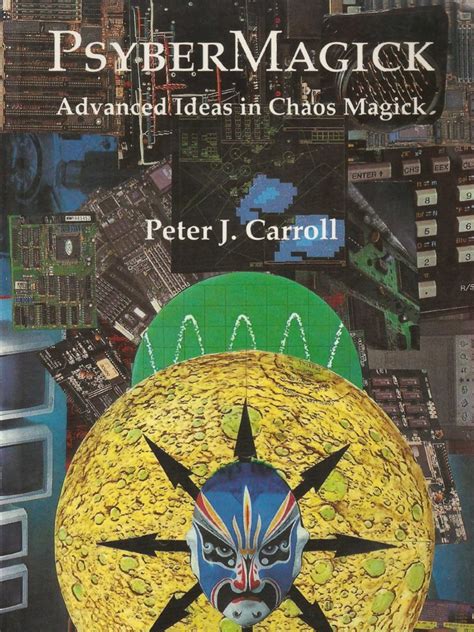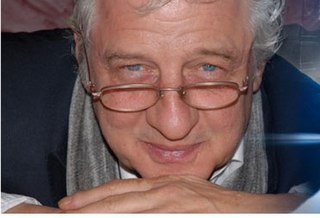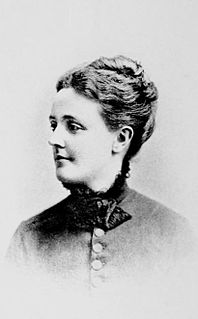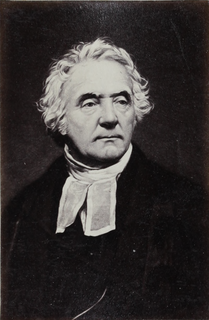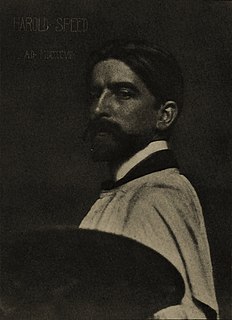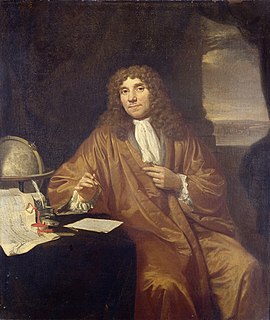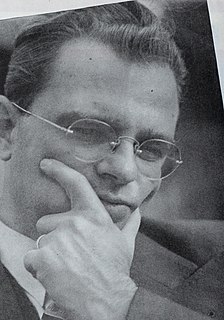Top 959 Observation Quotes & Sayings - Page 16
Explore popular Observation quotes.
Last updated on April 16, 2025.
As the great naturalist Charles Darwin saw clearly, individual and collective interests often coincide, as in the invisible hand narrative. But he also saw that in many other cases, interests at the two levels are squarely in conflict, and that in those cases, individual interests generally trump. That simple observation suggests that market failure is often the result not of insufficient competition (the traditional charge from social critics on the Left), but of the very logic of competition itself.
Plainly, this unwillingness to give ground even on unimportant disagreements is the symptom of some deepseated insecurity, as was my one-time fondness for making teasing remarks (which I amended when I read Anthony Powell's matter-of-fact observation that teasing is an unfailing sign of misery within) and as is my very pronounced impatience. The struggle, therefore, is to try and cultivate the virtuous side of these shortcomings: to be a genial host while only slightly whiffled, for example, or to be witty at the expense of one's own weaknesses instead of those of other people.
That man is formed for social life is an observation which, upon our first inquiry, presents itself immediately to our view, and our reason approves that wise and generous principle which actuated the first founders of civil government, an institution which hat its origin in the weakness of individuals, and hath for its end the strength and security of all; and so long as the means of effecting this important end are thoroughly known and religiously attended to government is one of the richest blessings to mankind, and ought to be held in the highest veneration
As man reaches out toward the twenty-first century, he will learn to be suspicious of all ideas that are not formulated so that they can be tested by observation. He will realize that the history of human thought shows that the ideas of which we are surest are the ones we most need to test. He will realize that his common sense only mirrors his training and experience. What seems natural and right to him is usually a reflection of the conditions under which he spent his first decade of life.
Must you write complete sentences each time, every time? Perish the thought. If your work consists only of fragments and floating clauses, the Grammar Police aren't going to come and take you away. Even William Strunk, that Mussolini of rhetoric, recognized the delicious pliability of language. "It is an old observation," he writes, "that the best writers sometimes disregard the rules of rhetoric." Yet he goes on to add this thought, which I urge you to consider: "Unless he is certain of doing well, [the writer] will probably do best to follow the rules."
When we enter the landscape to learn something, we are obligated, I think, to pay attention rather than constantly to pose questions. To approach the land as we would a person, by opening an intelligent conversation. And to stay in one place, to make of that one, long observation a fully dilated experience. We will always be rewarded if we give the land credit for more than we imagine, and if we imagine it as being more complex even than language. In these ways we begin, I think, to find a home, to sense how to fit a place.
Satellite photography in the 1970's gave rise to the long-range weather forecast, a month at a time. This in turn gave rise to the observation that the long-range weather forecast was wrong most of the time. In turn, this gave rise to the dropping of the long-range weather forecast and to the admission that really accurate forecasting could only cover the next day or two, and not always then.
It's likely that CO2 has some warming effect, but real proof of that hypothesis is tricky. You have to confirm by observation exactly how the CO2 changes the situation at different altitudes in the atmosphere and in different regions of the world. For example, CO2 is supposed to warm the upper air faster than the surface, but the measurements don't show that happening. When the CO2 effect is eventually pinned down, it will probably turn out to be weaker and much less worrisome than predicted by the global warming theorists.
To make our position clearer, we may formulate it in another way. Let us call a proposition which records an actual or possible observation an experiential proposition. Then we may say that it is the mark of a genuine factual proposition, not that it should be equivalent to an experiential proposition, or any finite number of experiential propositions, but simply that some experiential propositions can be deduced from it in conjunction with certain other premises without being deducible from those other premises alone.
People talking about politics usually start from the ass end backwards in that they think you have a political agenda, and then you make your work fit that cookie cutter. It's the other way around. One works by simple observation, looking into things. It's usually called insight and out of that comes your view - not that you have the view first and then squash everything to make it fit. I'm not interested in cutting the feet off my characters or stretching them to make them fit my certain political view.
Magnitude may be compared to the power output in kilowatts of a [radio] broadcasting station; local intensity, on the Mercalli or similar scale, is then comparable to the signal strength noted on a receiver at a given locality. Intensity, like signal strength, will generally fall off with distance from the source; it will also depend on local conditions at the point of observation, and to some extent on the conditions along the path from source to that point.
The kind of knowledge which is supported only by observations and is not yet proved must be carefully distinguished from the truth; it is gained by induction, as we usually say. Yet we have seen cases in which mere induction led to error. Therefore, we should take great care not to accept as true such properties of the numbers which we have discovered by observation and which are supported by induction alone. Indeed, we should use such a discovery as an opportunity to investigate more exactly the properties discovered and to prove or disprove them; in both cases we may learn something useful.
That the Hindus, absorbed in the ideal, lacked in realistic observation is evident from this. Take painting and sculpture. What do you see in the Hindu paintings? All sorts of grotesque and unnatural figures. What do you see in a Hindu temple? A Chaturbhanga Narayana or some such thing. But take into consideration any Italian picture or Grecian statue-what a study of nature you find in them! A gentleman for twenty years sat burning a candle in his hand, in order to paint a lady carrying a candle in her hand.
In 302, the Roman emperor Diocletian commanded "there should be cheapness," declaring, "Unprincipled greed appears wherever our armies ... march. ... Our law shall fix a measure and a limit to this greed." The predictable result of Diocletian's food price controls were black markets, hunger and food confiscation by his soldiers. Despite the disastrous history of price controls, politicians never manage to resist tampering with prices -- that's not a flattering observation of their learning abilities.
Yet some of my friends tell me they understand 50 percent of what my mother says. Some say they understand 80 to 90 percent. Some say they understand none of it, as if she were speaking pure Chinese. But to me, my mother's English is perfectly clear, perfectly natural. It's my mother tongue. Her language, as I hear it, is vivid, direct, full of observation and imagery. That was the language that helped shape the way I saw things, expressed things, made sense of the world
You love the accidental. A smile from a pretty girl in an interesting situation, a stolen glance, that is what you are hunting for, that is a motif for your aimless fantasy. You who always pride yourself on being an observateur must, in return, put up with becoming an object of observation. Ah, you are a strange fellow, one moment a child, the next an old man; one moment you are thinking most earnestly about the most important scholarly problems, how you will devote your life to them, and the next you are a lovesick fool. But you are a long way from marriage.
How very seldom do you encounter in the world a man of great abilities, acquirements, experience, who will unmask his mind, unbutton his brains, and pour forth in careless and picturesque phrase all the results of his studies and observation; his knowledge of men, books, and nature. On the contrary, if a man has by any chance an original idea, he hoards it as if it were old gold; and rather avoids the subject with which he is most conversant, from fear that you may appropriate his best thoughts.
Kafka often describes himself as a bloodless figure: a human being who doesn't really participate in the life of his fellow human beings, someone who doesn't actually live in the true sense of the word, but who consists rather of words and literature. In my view, that is, however, only half true. In a roundabout way through literature, which presupposes empathy and exact observation, he immerses himself again in the life of society; in a certain sense he comes back to it.
Drop jealousy and love wells up. Jealousy means that I am the owner. It is an ego trip, and wherever there is ego there is poison, and the poison kills the very source of love. One has to become aware of just these few things and discard them and one's life becomes a lotus of love. And then there is no need to go in any search of god, god will come in search of you. This is my observation, that god always comes seeking the true seeker. Whenever the disciple is ready the master appears.
Many concerns now make part or the whole of their dividends from by-products that formerly went to waste. How do we, as individuals, utilize our principal by-product? Our principal by-product is, of course, our leisure time. Many years of observation forces the conclusion that a man's success or failure in life is determined as much by how he acts during his leisure as by how he acts during his work hours. Tell me how a young man spends his evenings and I will tell you how he is likely to spend the latter part of his life.
Always make a note of what you are doing and where it leads. By and by, you will become aware of that which is ego and that which is nature; which is real and which is false. It will take time and alertness, observation. And don't deceive yourself - because only ego leads to misery, nothing else. Don't throw the responsibility on the other; the other is irrelevant. Your ego leads to misery, nobody else leads you into misery. Ego is the gate of hell, and the natural, the authentic, the real that comes from your center, is the door to heaven. You will have to find it and work it out.
It is worth repeating at this point the theories that Ford had come up with, on his first encounter with human beings, to account for their peculiar habit of continually stating and restating the very very obvious, as in "It's a nice day," or "You're very tall," or "So this is it, we're going to die." His first theory was that if human beings didn't keep exercising their lips, their mouths probably shriveled up. After a few months of observation he had come up with a second theory, which was this--"If human beings don't keep exercising their lips, their brains start working.
Careful observation will confirm that virtually all spontaneous parapsychological events occur through some form of sleight of mind. It is invariably something hovering just below the threshold of awareness that initiated an unusual event or gave one a curious half sensed feeling that something was about to happen just before it did. The magician seeks to exploid this effect deliberately, but in doing so he must avoid doing it deliberately as it were. Conscious lust of result destroys magical effect, so trickery must be employed to annul it and to activate the subconscious.
Individually we can work on ourselves. By working on your own ego and developing truth, control, and an equitable inner dialogue, you individualize the spirit within you through the process of observation. If you work on yourself, the progress you make radiates invisibly to others, helping them and giving them courage, which also improves the global picture. After all-your ego is a part of the world ego, and as you control it, you lessen the overall influence of the world ego while expanding the presence of truth on our planet.
But the idols of the Market Place are the most troublesome of all: idols which have crept into the understanding through their alliances with words and names. For men believe that their reason governs words. But words turn and twist the understanding. This it is that has rendered philosophy and the sciences inactive. Words are mostly cut to the common fashion and draw the distinctions which are most obvious to the common understanding. Whenever an understanding of greater acuteness or more diligent observation would alter those lines to suit the true distinctions of nature, words complain.
Generosity is another quality which, like patience, letting go, non-judging, and trust, provides a solid foundation for mindfulness practice. You might experiment with using the cultivation of generosity as a vehicle for deep self-observation and inquiry as well as an exercise in giving. A good place to start is with yourself. See if you can give yourself gifts that may be true blessings, such as self-acceptance, or some time each day with no purpose. Practice feeling deserving enough to accept these gifts without obligation-to simply receive from yourself, and from the universe.
My very photogenic mother died in a freak accident (picnic, lightning) when I was three, and, save for a pocket of warmth in the darkest past, nothing of her subsists within the hollows and dells of memory, over which, if you can still stand my style (I am writing under observation), the sun of my infancy had set: surely, you all know those redolent remnants of day suspended, with the midges, about some hedge in bloom or suddenly entered and traversed by the rambler, at the bottom of a hill, in the summer dusk; a furry warmth, golden midges.
if you don't keep and guard and mature your force, and above all, have time and quiet to perfect your work, you will be writing things not much better than you did five years ago. ... you must write to the human heart, the great consciousness that all humanity goes to make up. Otherwise what might be strength in a writer is only crudeness, and what might be insight is only observation; sentimemnt falls to sentimentality - you can write about life, but never write life itself.
Sovereignty inheres in the right to issue money. And the American sovereignty belongs by right to the people, and their representatives in Congress have the right to issue money and to determine the value thereof. And 120 million, 120 million suckers have lamentably failed to insist on the observation of this quite decided law. ... Now the point at which embezzlement of the nation's funds on the part of her officers becomes treason can probably be decided only by jurists, and not by hand-picked judges who support illegality.
The event concept was sparked from a shared observation amongst these leading lifestyle brands that the economic rebound has spurred greater liquidity into real estate, the stock market is setting new heights and consumers are generally stepping out more for luxury goods and services. After many years of pulling back, it was fun to see guests flirting with temptation, whether that was a new home, a new car, a new look or just to learn more about the trends. Others were happy to take in all the action.
I would say basically the commonplace observation that kids aren't going to earn as much as their parents is now is a coin flip at this point. Are you going to do better than your parents? It's a 50-50 chance, whereas if you were born in the 1940s or 1950s, you had more than a 90 percent chance you were going to do better than your parents. So basically almost a guarantee for most kids that you were going to achieve the American Dream of doing better than your parents did. Today, that's certainly no longer the case.
I don't need to praise anything so justly famous as Frost's observation of and empathy with everything in Nature from a hornet to a hillside; and he has observed his own nature, one person's random or consequential chains of thoughts and feelings and perceptions, quite as well. (And this person, in the poems, is not the "alienated artist" cut off from everybody who isn't, yum-yum, another alienated artist; he is someone like normal people only more so - a normal person in the less common and more important sense of normal.)
You can see the most beautiful things from the observation deck of the Empire State Building. I read somewhere that people on the street are supposed to look like ants, but that's not true. They look like little people. And the cars look like little cars. And even the buildings look little. It's like New York is a miniature replica of New York, which is nice, because you can see what it's really like, instead of how it feels when you're in the middle of it.
The human mind feels restless and dissatisfied under the anxieties of ignorance. It longs for the repose of conviction; and to gain this repose it will often rather precipitate its conclusions than wait for the tardy lights of observation and experiment. There is such a thing, too, as the love of simplicity and system,--a prejudice of the understanding which disposes it to include all the phenomena of nature under a few sweeping generalities,--an indolence which loves to repose on the beauties of a theory rather than encounter the fatiguing detail of its evidences.
It appears to general observation, that revolutions create genius and talents; but those events do no more than bring them forward. There is existing in man, a mass of sense lying in a dormant state, and which, unless something excites it to action, will descend with him, in that condition, to the grave. As it is to the advantage of society that the whole of its faculties should be employed, the construction of government ought to be such as to bring forward, by a quiet and regular operation, all that extent of capacity which never fails to appear in revolutions.
By the respectable terms of the modern literary profession, novelists do not preach. And, in fact, there has probably not been a less respectable novelist among the irrefutably enduring writers of our time than Ayn Rand: philosopher queen of the best-seller lists in the forties and fifties, cult phenomenon and nationally declared threat to public morality in the sixties, guru to the Libertarians and to White House economic policy in the seventies, and a continuing exemplar or Wilde's tragic observation that more than half of modern culture depends on what one shouldn't read.
His skin was a pretty colour, it made me jealous. Jacob noticed my scrutiny. What?" he asked, suddenly self-conscious. "Nothing. I just hadn't realised before. Did you know, you're sort of beautiful?" Once the words slipped out, I worried that he might take my implusive observation the wrong way. But Jacob rolled his eyes. "You hit your head pretty hard, didn't you?" "I'm serious." Well, then, thanks. Sort of." I grinned. "You're sort of welcome.
I don't like honors. I'm appreciated for the work that I did, and for people who appreciate it, and I notice that other physicists use my work. I don't need anything else. I don't think there's any sense to anything else.... I've already got the prize. The prize is the pleasure of finding the thing out, the kick in the discovery, the observation that other people use it. Those are the real things. The honors are unreal to me. I don't believe in honors... I can't stand it, it hurts me.
If the best way to learn to succeed is to fail as fast as possible, then the second-best way is to watch someone else fail as fast as possible. Watching someone else screw up is a kind of rehearsal for your own eventual downfall. A close observation of someone else's attempt to resolve a difficulty is a great way to acquire real-world insight into whether and when to deploy their method in your own times of trouble.
The object of your training in drawing should be to develop to the uttermost the observation of form and all that it signifies, and your powers of accurately portraying this on paper.
Let painstaking accuracy be your aim for a long time. When your eye and hand have acquired the power of seeing and expressing on paper with some degree of accuracy what you see, you will find facility and quickness of execution will come of their own accord.
Unflinching honesty must be observed in all your studies. It is only then that the ‘you’ in you will eventually find expression in your work.
One night, a group of moths gathered on a shelf watching a burning candle. Puzzled by the nature of the light, they sent one of their members to go and check on it. The scouting moth circled the candle several times and came back with a description: The light was bright. Then a second moth went to examine it. He, too, came back with an observation: The light was hot. Finally a third moth volunteered to go. When he approached the candle he didn't stop like his friends had done, but flew straight into the flame. He was consumed there and then, and only he understood the nature of the light.
What we know is not capable of being otherwise; of things capable of being otherwise we do not know, when they have passed outsideour observation, whether they exist or not. Therefore the object of knowledge is of necessity. Therefore it is eternal; for things that are of necessity in the unqualified sense are all eternal; and things that are eternal are ungenerated and imperishable.
Passing just lately over this lake, ... and examining this water next day, I found floating therein divers earthy particles, and some green streaks, spirally wound serpent-wise, and orderly arranged, after the manner of the copper or tin worms, which distillers use to cool their liquors as they distil over. The whole circumference of each of these streaks was about the thickness of a hair of one's head. ... all consisted of very small green globules joined together: and there were very many small green globules as well. [The earliest recorded observation of the common green alga Spyrogyra.]
The most necessary task of civilization is to teach people how to think. It should be the primary purpose of our public schools. The mind of a child is naturally active, it develops through exercise. Give a child plenty of exercise, for body and brain. The trouble with our way of educating is that it does not give elasticity to the mind. It casts the brain into a mold. It insists that the child must accept. It does not encourage original thought or reasoning, and it lays more stress on memory than observation.
Most of the people buying the Soviet paraphernalia were Americans and West Europeans. All would be sickened by the thought of wearing a swastika. None objected, however, to wearing the hammer and sickle on a T-shirt or a hat. It was a minor observation, but sometimes, it is through just such minor observations that a cultural mood is best observed. For here, the lesson could not have been clearer: while the symbol of one mass murder fills us with horror, the symbol of another mass murder makes us laugh.
See what a hidden life the life of a good Christian is, and how much it is concealed from the eye and observation of the world. The most important part of the business lies between God and our own souls, in the frame of our spirits and the working of our hearts, in our actions that no eye sees except the all-seeing God. Justly are the saints called God's hidden ones, and His secret is said to be with them. They have meat to eat and work to do that the world does not know of, as well as joys, griefs, and cares that a stranger does not share.
Alas! What is man? Whether he be deprived of that light which is from on high, of whether he discard it, a frail and trembling creature; standing on time, that bleak and narrow isthmus between two eternities, he sees nothing but impenetrable darkness on the one hand, and doubt, distrust, and conjecture, still more perplexing, on the other. Most gladly would he take an observation, as to whence he has come, or whither he is going; alas, he has not the means: his telescope is too dim, his compass too wavering, his plummet too short.
Apple was very close to bankruptcy and to irrelevance [but] you learn a lot about life through death, and I learnt a lot about vital corporations by experiencing a non-vital corporation. You would have thought that, when what stands between you and bankruptcy is some money, your focus would be on making some money, but that was not [Steve Jobs’] preoccupation. His observation was that the products weren’t good enough and his resolve was, we need to make better products. That stood in stark contrast to the previous attempts to turn the company around.
Women speak an average 18,000 more words a day than men do. And there may be a genetic reason, it may be neurologically. Not that there's anything wrong with it. See, this is the thing. When you make the observation that women talk 18,000 more words a day than men, it's immediately taken as a criticism because it implies inequality. It implies that there's something wrong with women.
After a quarter of a century of personal experience and professional observation, I have come to understand that peace of mind is the true goal of the considered life. I know now that the sum of all other possessions does not necessarily add up to peace of mind; on the other hand, I have seen this inner tranquility flourish without the material supports of property or even the buttress of physical health. Peace of mind can transform a cottage into a spacious manor hall; the want of it can make a regal residence an imprisoning shell.
No Geologist worth anything is permanently bound to a desk or laboratory, but the charming notion that true science can only be based on unbiased observation of nature in the raw is mythology. Creative work, in geology and anywhere else, is interaction and synthesis: half-baked ideas from a bar room, rocks in the field, chains of thought from lonely walks, numbers squeezed from rocks in a laboratory, numbers from a calculator riveted to a desk, fancy equipment usually malfunctioning on expensive ships, cheap equipment in the human cranium, arguments before a road cut.
The concept of intuition is more often used in philosophical theorizing than is the concept of observation in scientific theorizing (proportionately). One reason is that there is (proportionately) more ostensible conflict of philosophical intuitions than there is ostensible conflict of scientific observations. So much for the use of a concept of intuition in philosophical theorizing.
The Man of Genius may at the same time be, indeed is commonly, an Artist, but the two are not to be confounded. The Man of Genius,referred to mankind, is an originator, an inspired or demonic man, who produces a perfect work in obedience to laws yet unexplored. The artist is he who detects and applies the law from observation of the works of Genius, whether of man or nature. The Artisan is he who merely applies the rules which others have detected. There has been no man of pure Genius, as there has been none wholly destitute of Genius.
I know not whether it would be too bold an assertion to say that candor makes capacity.... But in order to try the truth of any observation relating to the mind, the easiest method is to illustrate it by outward objects. If, for instance, a man was to sweat and labor all the days of his life to fill a chest which was already full, the absurdity of his vain endeavor would be glaring. In the same manner, when the human mind is filled and stuffed with notions brought thither by fallacious inclinations, there is no room for truth to enter: candor being banished, passions alone bear the sway.
The air of caricature never fails to show itself in the products of reason applied relentlessly and without correction. The observation of clinical facts would seem to be a pursuit of the physician as harmless as it is indispensable. [But] it seemed irresistibly rational to certain minds that diseases should be as fully classifiable as are beetles and butterflies. This doctrine ... bore perhaps its richest fruit in the hands of Boissier de Sauvauges. In his Nosologia Methodica published in 1768 ... this Linnaeus of the bedside grouped diseases into ten classes, 295 genera, and 2400 species.
As an engineer, I understood that the natural world operated according to fixed laws. Through my studies, I came to realize that there were, likewise, laws that govern human wellbeing. It seemed to me that these laws are fundamental not only to the wellbeing of societies, but also to the miniature societies of organizations. Indeed, that is what we found when we began to apply these principles systematically at Koch Industries. Through our observation of how they could create prosperity in an organization, I began to systematize my beliefs into Market-Based Management.
Certainly I do not wish that instead of these masters I had read baby books, written down to children, and with such ignorant dullness that they blunt the sense and corrupt the tastes of the still plastic human being. But I do wish that I had read no books at all till later - that I had lived with toys, and played in the open air. Children should not cull the fruits of reflection and observation early, but expand in the sun, and let thoughts come to them. They should not through books antedate their actual experiences.
The young man [Turgot] destined for an ecclesiastical career was placed within walls carefully designed to keep out all currents of new thought; his studies, his reading, his professors, his associates, all were combined to keep from him any results of observation or reflection save those prescribed: probably, of all means for stifling healthy and helpful thought, a theological seminary, as then conducted whether Catholic or Protestant, Jewish or Mohammedan, was the most perfect.
